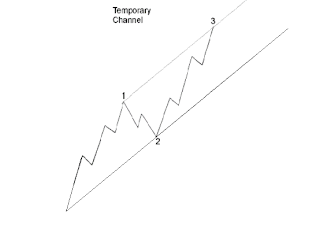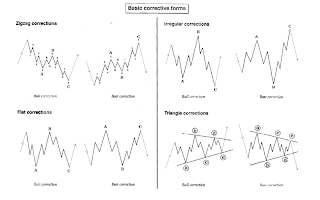1. U.S
The amount of official gold reserve: 8,133.5 tonnes
The percentage of gold in total foreign exchange reserves: 75.6%
1952, the U.S. has the largest gold reserves in the world with 20,663 tonnes. For the first time this number falls below 10K is in 1968.
2. Germany
The amount of official gold reserve: 3,391.3 tonnes
The percentage of gold in total foreign exchange reserves: 72.7%.
Germany has sold gold under CBGA1 and 2 for the purpose of casting coins. In the first year of CBGA3 (2008-2009), the Bundesbank has sold approximately 6 tonnes and 4.7 tonnes of gold sold from the date of 7/12/2011. To date, there is no change in the gold reserves of Germany, however, the Bundesbank said in January they're summoning all the physical gold in Paris and the Fed, New York.
|
|
3. Italy
The amount of official gold reserve: 2,451.8 tonnes
The percentage of gold in total foreign exchange reserves: 72.2%
Italy did not sell any gold bullion since CBGA1 to CBGA3 CBGA2 while it did not mention information related to gold. However, in 2011, it was reported that the central bank has bought gold to and improve its balance sheet before the inspection capacity.
4. France
The amount of official gold reserve: 2,435.4 tonnes
The percentage of gold in total foreign exchange reserves: 9.2%
France has sold 572 tonnes of gold in CBGA2 period, then also sold about 17 tons to the Bank for International Settlements in late 2004, part of a stock purchase BIS. France can not comment on plans to sell gold under CBGA3.
5. China
The amount of official gold reserve: 1,054.1 tonnes
The percentage of gold in total foreign exchange reserves: 1.7%
As can be seen, gold still accounts for a relatively small portion of the total U.S. $ 3.2 trillion foreign exchange reserves of China. This is a modest figure if placed next milestone an average of 10% of the world.
Building gold stocks are hot issue in the context of China's national ambitions to internationalize its currency-Financial Times said.
6. Switzerland
The amount of official gold reserve: 1,040.1 tonnes
The percentage of gold in total foreign exchange reserves: 10.5%
According to the World Gold Council, in 1997 in this draft mentioned the sale of a portion of gold in reserves because they no longer consider "the necessity of monetary policy purposes" anymore.
1,300 tons of gold is considered to be too much and the country started selling out in 5/2000. Then, 1,170 tonnes were sold under CBGA1 and 130 tons were sold during the period CBGA2. Switzerland is also not available for comment on the sale of gold in the time taken CBGA3.
7. Russia
Official gold reserves: 969.9 tonnes
The percentage of gold in total foreign exchange reserves: 9.8%
Russia has set a target of collecting gold from 2006 to diversify its foreign exchange reserves as well as its foundation for the ruble to become an international reserve currency. Last year, Russia has bought 75 tonnes, most of the gold ever mined in the country.
8. Japan
Official gold reserves: 765.2 tonnes
The percentage of gold in total foreign exchange reserves: 3.2%.
In 1960, the gold reserves of Japan with only modest little figure 6 tons. However, a sharp jump occurred in 1959 and since then, the reserves of the country are higher, typically buying tons in 2012 to 169 this year.
In 2011, Japan's central bank sold gold to collect 20 trillion yen to reassure functioning economy in the aftermath of the earthquake, tsunami and nuclear.
9. Netherlands:
Official gold reserves: 612.5 tonnes
The percentage of gold in total foreign exchange reserves: 59.2%.
In 1999, the Netherlands adopted the Treaty of central bank gold (CBGA1), which allows to sell 300 tonnes of gold within 5 years later. However, they only sold 235 tons.
Time CBGA2 (2004/2005 - '08 / '09), the Bank has sold a total of 165 tons (including 65 tons of residues from CBGA1). However, under CBGA3 (2008/2009 - '13 / '14), they will not sell a certain amount of gold.
10. India:
Official gold reserves: 557.7 tonnes
The percentage of gold in total foreign exchange reserves: 9.9%
India's central bank is said to have bought the IMF gold and gold is always considered safe investments although rarely comment on his purchase collection. Meanwhile, the government is also trying to limit people buy gold because that is the source of gold imports attack caused the national budget deficit.
Official gold reserves: 557.7 tonnes
The percentage of gold in total foreign exchange reserves: 9.9%
India's central bank is said to have bought the IMF gold and gold is always considered safe investments although rarely comment on his purchase collection. Meanwhile, the government is also trying to limit people buy gold because that is the source of gold imports attack caused the national budget deficit.





.png)
.png)
.png)
.png)
.png)
.png)









